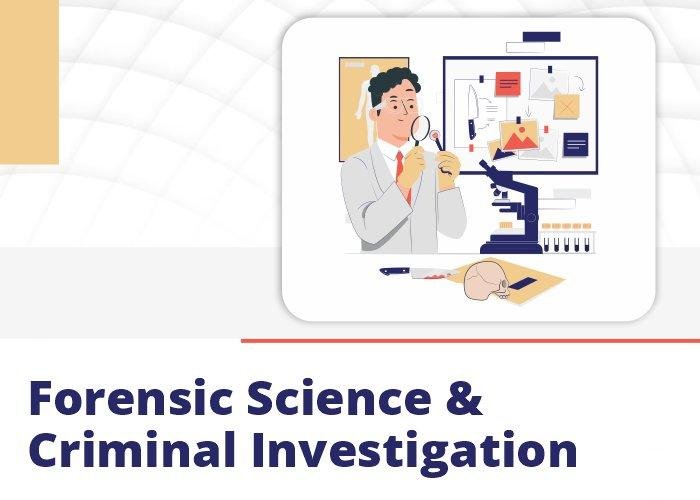Forensics is an interesting and important field in solving crimes, fighting for justice and explaining the subtleties behind certain phenomena. Even though it is considered that theoretical knowledge is substantial, it always stays unmatched to practical experience. Anyone who is interested in this field requires extra courses and internships with practical sessions. This blog post aims at discussing certified offline forensic training programs and internships and their relevance to developing a great career.
The Importance of Practical Training in Forensics
Builds Confidence: The use of tools as well as evidence during training increases confidence to tackle real life cases.
Improves Skill Set: Starting from the general knowledge of the crime scene procedures to the application of modern diagnostic software, it develops the necessary skills.
Encourages Critical Thinking: Role play engages the students and tests their cognitive ability, low-incidence skills prompt, immediate decision-making.
Certified Offline Training Programs: Why?
Despite the advancement of the online learning system, there is a special value of the offline training in the preparation of the forensic learners. Certified offline programs offer unique advantages:
1. Hands-On Access to Equipment
Offline programs offer focused access to actual working forensic instruments including microscopes, fingerprints, and spectrometers. Students can touch the equipment and make themselves acquainted with its working.
2. Interaction with Experts
Practical content such as lectures and practical demonstrations with forensic professionals, guest speakers, and trainers offer chances to ask questions, learn from mentors, and experience situations that are difficult to encounter otherwise, face to face.
3. Realistic Simulations
Certified offline courses are accompanied by realistic crime scenes and trials. These enable participants to get closer to the different aspects of investigations, manner of handling the evidence and the presentation of expert witnesses.
4. Networking Opportunities
Getting acquainted with the peers, professionals and organizations in the forensic field is possible during the online classes but the offline training offers the chances of getting employment opportunities in the forensic field.
Components of a Comprehensive Forensic Internship
Training programs also have a pendant in internships which offer a connection between learning and practice. A good forensic internship should include:
1. Diverse Casework Exposure
The cases that interns should work should include fingerprint analysis, documents examination, digital forensics, and toxicology. This variety then serves them best in determining areas they are interested in as well as their capabilities.
2. Field Experience
Collecting and preserving evidence at a crime scene is a critical skill. Internships should be a way of having practical experience doing internships with supervision.
3. Laboratory Practicals
Despite ranging from DNA profiling to ballistics, the beaming heart of forensic studies constitutes laboratory work. Interns are supposed to work in practical environments inclusive of laboratories.
4. Report Writing and Courtroom Training
Experts in the field of forensic are in the practice of providing testimonies. Yet another important aspect, which interns get through, is how to write detailed, unbiased reports and how trials run.
Top Sections Taught in Forensic Course
Certified forensic training programs with practical’s typically cover a broad range of subjects, including:
Crime Scene Investigation (CSI): Methods for the safety, documentation, and collection of proof.
Fingerprint Analysis: Detecting, developing and studying hidden fingerprints.
Digital Forensics: Taking out and analyzing computer forensic data from equipment.
Forensic Photography: Investigating the authenticity through professional approach of documentary photography.
Questioned Document Examination: Forensic questioned document examination of writing, autograph, and forged papers.
Forensic Toxicology: Identification and quantification of chemicals in a biologic matrix.
Which Course to Choose: An Overview of Forensic Training?
Program selection is necessary to become an expert and achieve the goal. Here’s what to look for:
Accreditation: To add on this, one must make sure that the program is certified and accredited to professional bodies or institutions.
Practical Focus: Search for programs that pay significant attention to practical sessions and exercises as close to actual work as possible.
Experienced Faculty: Trainers with real world experiences are important.
Internship Opportunities: Select those courses which are associated with internships with famous forensic laboratories or firms.
Advantages of Certified Offline Training and Internship
Industry Readiness: Acquire working knowledge on how to manage forensic cases effectively.
Improved Job Prospects: Employers prefer certified hand-on training for their employees.
Better Understanding of Concepts: Theory in use builds on theory in head.
Professional Connections: Establish relationships which can help your careers in the future.
How the Practical Forensic Training Helps in the Real World
Most of the professionals owe their successes to the extensive number of practical sessions they undertook while attending their forensic internships. From participating in solving popular cases to enhancing forensic science, something learnt in offline courses stays with you for the rest of your life.
Conclusion
Forensic science is a relatively young and wide scientific field that requires more than the knowledge of textbooks. Certified forensic training and internship help the young professionals to develop skills, confidence and experience. The points above indicate that selecting the correct program will create a good base for an enriching and dynamic profession in this growing area.
Do you feel prepared for that first step that will lead you to your career in forensic? Don’t wait any longer, join a certified forensic training program now and get the best out of yourself.
